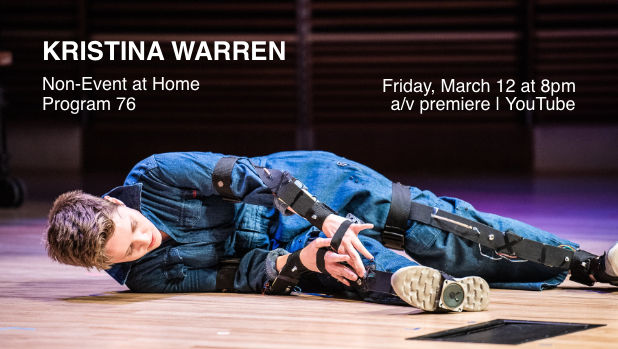Judy Dunaway: "The Forgotten 1979 MoMA Sound Art Exhibition"
JUDY DUNAWAY
Talk: "The Forgotten 1979 MoMA Sound Art Exhibition"
Sunday, March 7, 2021 3PM
FREE on Zoom
Judy Dunaway will discuss her paper “The Forgotten 1979 MoMA Sound Art Exhibition,” followed by a live Q&A session. Abstract: Over the past 40 years “sound art” has been hailed as a new artistic category in numerous writings, yet one of its first significant exhibitions is mentioned only in passing, if at all. The first instance of the hybrid term sound art used as the title of an exhibition at a major museum was Sound Art at the Museum of Modern Art in New York (MoMA), shown from 25 June to 5 August 1979. Although this was not marketed as a feminist exhibition, curator Barbara London selected three women to exemplify the new form. Maggi Payne created multi-speaker works that utilized space in a sculptural fashion; Connie Beckley combined language and sounding sculptural objects, showing sound in both a conceptual and physical manifestation; and Julia Heyward’s work used aspects of feminist performance art including music, narrative, and the voice in order to buck abstract aesthetics of the time. This paper uses archival research, interviews, and analysis of work presented to reconstruct the exhibition and describe the obstacles both the artists and the curator encountered. The paper further provides context in the lives of the artists and the curator as well as the surrounding artistic scene, and ultimately exposes the discriminatory reasons this important exhibition has been marginalized in the current discourse.
JUDY DUNAWAY has been teaching A History of Sound Art in the History of Art Department at Massachusetts College of Art and Design for many years. She has a Ph.D. in Music Composition from Stony Brook University and an M.A. in music with emphasis in experimental composition from Wesleyan University. She has had a lengthy career as an artist and musician.
To show your support, Judy asks that you donate to Fair Foods, a nonprofit organization that provides low-cost fresh produce to people in need in the Boston area without eligibility requirements, registration, or ID checks.



